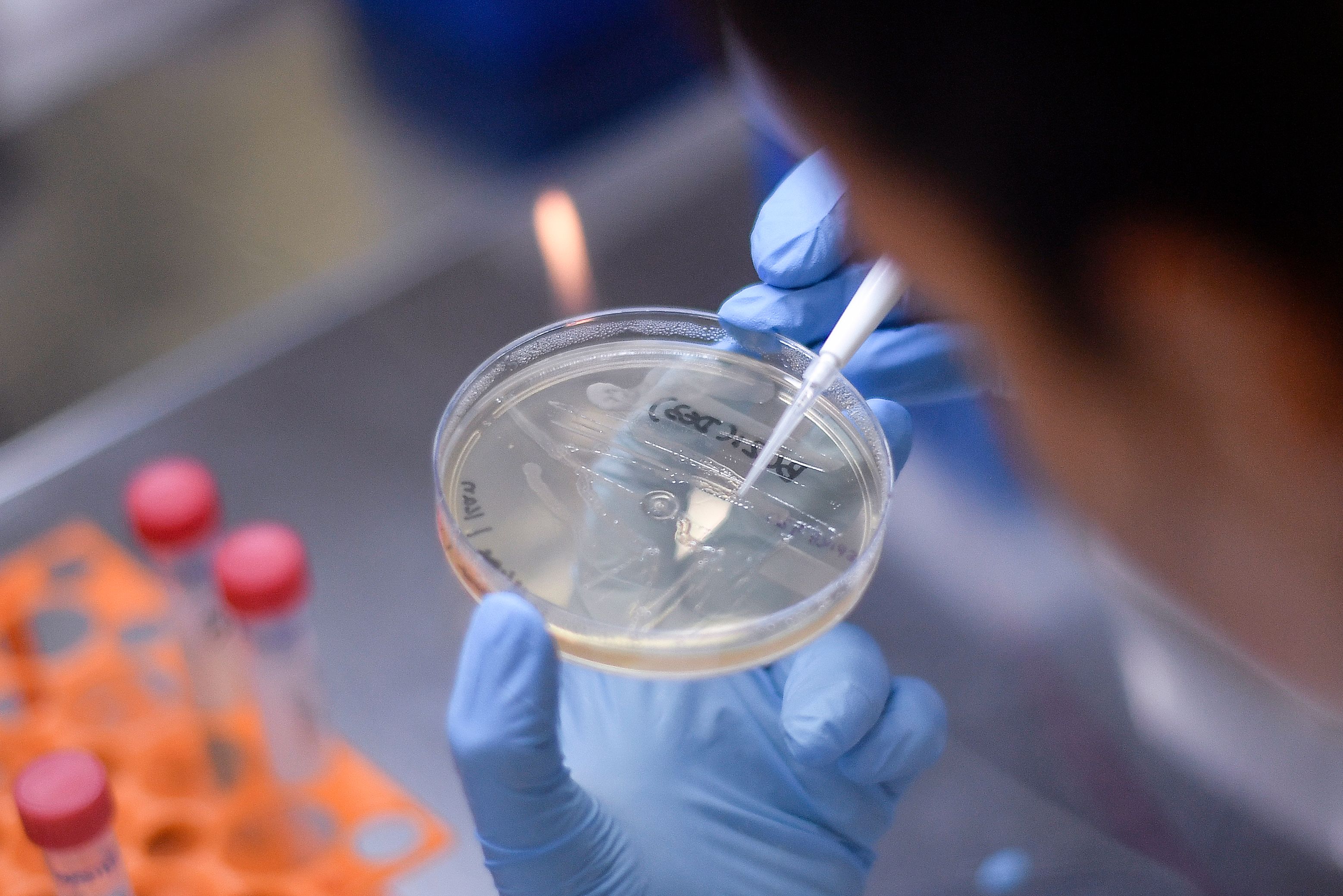What comes after social distancing? Scientists are proposing a massive test-and-trace effort requiring 'tens of thousands of people'


A free daily email with the biggest news stories of the day – and the best features from TheWeek.com
You are now subscribed
Your newsletter sign-up was successful
Scientists are certainly on board with social distancing as a method to put a dent in the novel coronavirus pandemic, but they also acknowledge other measures will eventually have to take over as restrictions ease, Vox reports.
"The classic epidemiological approach to controlling disease is not to shut down society; it's to target the people you know to have the disease and understand who they're spreading it to," said Jeremy Konyndyk, a senior policy fellow at the Center for Global Development.
Right now, that's not possible in the United States, because there isn't an adequate amount of testing, but "once you bring the numbers back to a manageable level," Konyndyk said, expansive testing and contact tracing should become the prominent methods for suppressing the virus' spread.
The Week
Escape your echo chamber. Get the facts behind the news, plus analysis from multiple perspectives.

Sign up for The Week's Free Newsletters
From our morning news briefing to a weekly Good News Newsletter, get the best of The Week delivered directly to your inbox.
From our morning news briefing to a weekly Good News Newsletter, get the best of The Week delivered directly to your inbox.
It won't be easy, however. Caitlin Rivers, a professor at Johns Hopkins Center for Health Security, said "it's very labor-intensive to find contact of people who are sick" in part because one aspect of contact tracing is continually checking on people to see if they've become sick themsleves. Kondynyk said such an enterprise would take "tens of thousands" of health care workers, if not more. That likely means at least some social distancing measures should remain in place simultaneously.
Scientists, though, are concerned that they're not seeing a test-and-trace vision coming from the federal government, so it remains unclear if "textbook epidemiology" will have its day. Read more at Vox.
A free daily email with the biggest news stories of the day – and the best features from TheWeek.com
Tim is a staff writer at The Week and has contributed to Bedford and Bowery and The New York Transatlantic. He is a graduate of Occidental College and NYU's journalism school. Tim enjoys writing about baseball, Europe, and extinct megafauna. He lives in New York City.
-
 What to know before filing your own taxes for the first time
What to know before filing your own taxes for the first timethe explainer Tackle this financial milestone with confidence
-
 The biggest box office flops of the 21st century
The biggest box office flops of the 21st centuryin depth Unnecessary remakes and turgid, expensive CGI-fests highlight this list of these most notorious box-office losers
-
 What are the best investments for beginners?
What are the best investments for beginners?The Explainer Stocks and ETFs and bonds, oh my
-
 Blue Origin launches Mars probes in NASA debut
Blue Origin launches Mars probes in NASA debutSpeed Read The New Glenn rocket is carrying small twin spacecraft toward Mars as part of NASA’s Escapade mission
-
 Dinosaurs were thriving before asteroid, study finds
Dinosaurs were thriving before asteroid, study findsSpeed Read The dinosaurs would not have gone extinct if not for the asteroid
-
 SpaceX breaks Starship losing streak in 10th test
SpaceX breaks Starship losing streak in 10th testspeed read The Starship rocket's test flight was largely successful, deploying eight dummy satellites during its hour in space
-
 Rabbits with 'horns' sighted across Colorado
Rabbits with 'horns' sighted across Coloradospeed read These creatures are infected with the 'mostly harmless' Shope papilloma virus
-
 Lithium shows promise in Alzheimer's study
Lithium shows promise in Alzheimer's studySpeed Read Potential new treatments could use small amounts of the common metal
-
 Scientists discover cause of massive sea star die-off
Scientists discover cause of massive sea star die-offSpeed Read A bacteria related to cholera has been found responsible for the deaths of more than 5 billion sea stars
-
 'Thriving' ecosystem found 30,000 feet undersea
'Thriving' ecosystem found 30,000 feet underseaSpeed Read Researchers discovered communities of creatures living in frigid, pitch-black waters under high pressure
-
 New York plans first nuclear plant in 36 years
New York plans first nuclear plant in 36 yearsSpeed Read The plant, to be constructed somewhere in upstate New York, will produce enough energy to power a million homes
